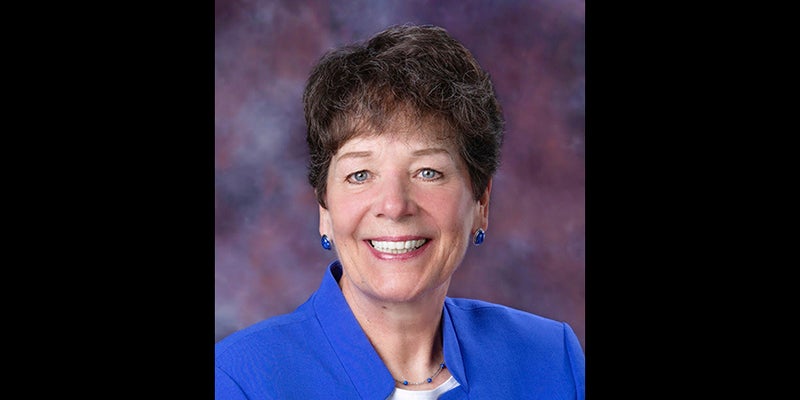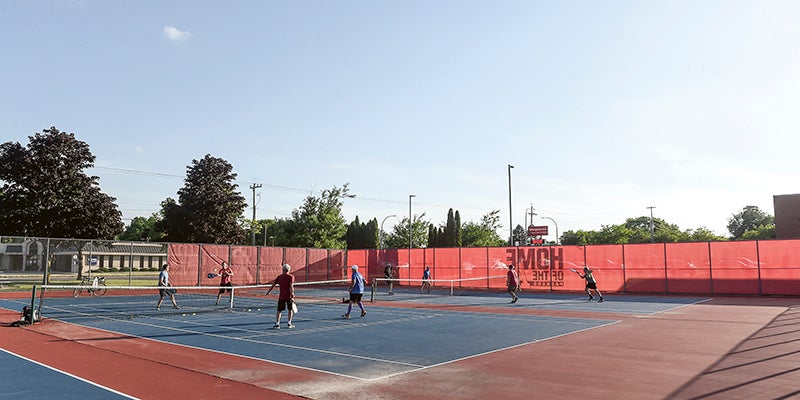From Minnesota to Sochi
Published 9:04 am Thursday, February 6, 2014
Minnesotan takes aim at USA’s first biathlon medal
Leif Nordgren won the first cross-country ski race he ever entered.
“I was just impressed he skied the whole way, for an entire kilometer,” said his mother, Sue. “He usually doddled along the way when he skied.”
That’s because he was 4.
In the decorated career of Nordgren, that “gold medal” might have an asterisk — he was the only competitor in his age group — but the glory stuck.
“He entered every race he could after that,” Sue Nordgren said.
Starting on Saturday, Nordgren, 24, who lives in Marine on St. Croix, will clip on skis and sling a .22-caliber rifle to his back in Sochi, Russia, as the U.S team tries to win its first Olympic medal in biathlon.
It’s the only winter sport America has never medaled in, and Team USA and biathlon observers say this year is the greatest chance yet in a sport dominated by northern and eastern European nations.
But ask Nordgren, who is a long shot to medal individually but could as a member of the relay team, about potentially making history, and here’s his response: “I haven’t thought too much about that. When you start thinking about results, it ends up being quite different than the reality. I focus on what I’ve trained to do.”
One reason for that is the sport itself: half ski race, half precision shooting. The effect is a race that can change leaders in an instant; a dominant skier can fall to nearly out of contention with two missed shots. Biathlon races like the 15k Mass Start (Sunday, 9 a.m. our time) — where the penalty for a missed shot is an extra lap and the first to cross the finish line wins — can be wild events.
In parts of Europe, including host country Russia, crowds of 20,000 to 35,000 people aren’t uncommon. In America, of course, biathlon carries a less-rabid following.
—By Dave Orrick
Bloomington skier blazing trail in slopestyle event
Bloomington native Keri Herman secured one of the final U.S. Olympic spots and will be among the first women to compete in the pioneering slopestyle freeskiing event in Sochi, Russia.
The former high school hockey player who graduated from Visitation High School in Mendota Heights qualified Jan. 19 during a U.S. Grand Prix competition in Park City, Utah.
Slopestyle freeskiing is a byproduct of the X Games. Skiers are judged by their ability to ski down rails on the course and stick flipping, twisting, midair jumps. This is the first time Olympic medals will be awarded in the sport.
Herman, 31, who lives and trains in Breckenridge, Colo., took up skiing while attending the University of Denver. She graduated in 2005 with a degree in marketing and finance but gravitated to competitive freeskiing instead of embarking on a business career.
In 2010 she competed in her first Winter X Games and starting collecting medals and posting top-five finishes, finishing third in the AFP women’s rankings in 2012.
Last year, she won the opening Olympic qualifying slopestyle World Cup in Argentina, becoming the first American woman to ever win the season’s World Cup slopestyle title.
“My wins this season were so exciting,” she was quoted as saying on the U.S. Freeskiing website. “I almost didn’t go to the Argentina World Cup, but I am so happy I did. The icing on the cake was the slopestyle title at the end of the season. I wasn’t expecting that.”
—By Brian Murphy
Curlers: A different brand of Olympic athlete
DULUTH— Monday mornings are hardest for U.S. Olympic curler John Landsteiner. Not the conventional drudgery of starting another work week, but rehashing for colleagues his unconventional weekend as a world-class athlete.
Landsteiner is a civil engineer who manages energy pipeline projects across Minnesota and Wisconsin. He also throws the lead rock for skip John Shuster, the Chisholm native whose five-man curling team of Minnesotans will represent the U.S. at the 2014 Winter Olympics in Sochi, Russia.
Since August, Landsteiner typically hopped on a plane every other Thursday night, curled over the weekend and returned jet-lagged to his desk at Lake Superior Consulting.
It was a grinding schedule that took him to Edmonton, Alberta, and Las Vegas, as nearby as Fargo, N.D., and to far-flung Fussen, Germany, where his teammates earned their Olympic berth.
“I get a lot of crap for it, but everybody’s excited,” said Landsteiner. “The morning I come back is usually distracting. People want to know how it went: ‘Did you have fun? Did you win or lose?’ “
The office cubicle, a soul-crushing prison for some sedentary workers, is a welcome retreat for Landsteiner.
“The cube helps because I’m kind of in my own sanctuary and I can focus on what I need to,” he said. “Once I get back there and back to my house, everything feels normal. Curling’s normal, too. That’s the normal life.”
Curlers are the everyday people among Winter Olympians, whose gilded athletes are celebrated for their singular focus, sometimes years in the making.
—By Brian Murphy
Stories distributed by the Pioneer Press via MCT Information Services





